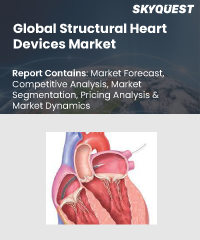
Report ID: SQMIG35G2184
Skyquest Technology's expert advisors have carried out comprehensive research and identified these companies as industry leaders in the Structural Heart Devices Market. This Analysis is based on comprehensive primary and secondary research on the corporate strategies, financial and operational performance, product portfolio, market share and brand analysis of all the leading Structural Heart Devices industry players.
The global structural heart devices market is characterized by a mix of established companies and emerging players. Market participants are focusing on research and development activities to enhance the efficiency and performance of Structural Heart Devices. Additionally, strategic collaborations, partnerships, and mergers and acquisitions are prevalent strategies adopted by companies to expand their market presence. The competitive environment is further influenced by factors such as technological advancements, government regulations, and the ability to provide cost-effective and sustainable solutions.
Structural Heart Devices Market Top Player’s Company Profiles
REQUEST FOR SAMPLE
Want to customize this report? This report can be personalized according to your needs. Our analysts and industry experts will work directly with you to understand your requirements and provide you with customized data in a short amount of time. We offer $1000 worth of FREE customization at the time of purchase.
Feedback From Our Clients

Report ID: SQMIG35G2184
sales@skyquestt.com
USA +1 351-333-4748